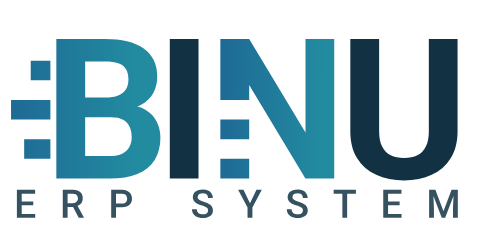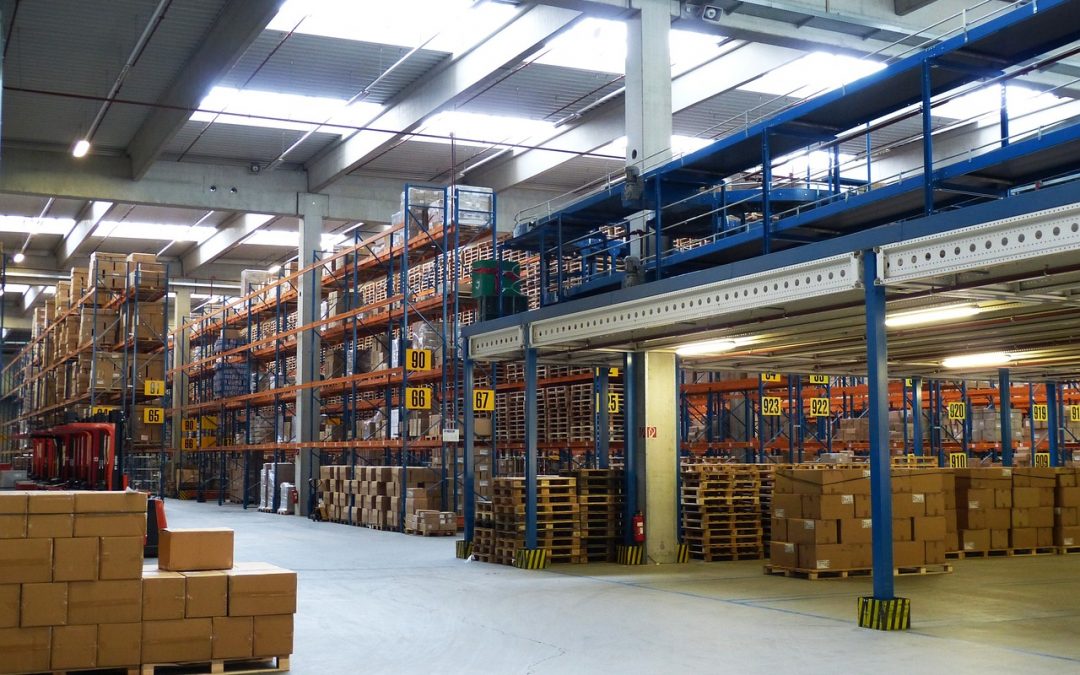Table of Contents:
- Introduction
- Understanding ERP Systems for Manufacturing
- What is an ERP System in a Warehouse?
- ERP System vs. WMS (Warehouse Management System)
- The Role of Warehouses in Manufacturing
- Integrating Warehouse Management with ERP Systems
- Using ERP for Warehouse Management in Manufacturing
- Challenges in Managing Warehouses Without ERP Systems
- How Binu ERP Can Help Optimize Warehouse Management
- FAQ – Warehouse in ERP System for Manufacturing
- Conclusion of article
Introduction
In today’s fast-paced manufacturing industry, having an efficient warehouse management system (WMS) with enterprise resource planning (ERP) is essential. Warehouses play a important role in managing materials, stock, and overall supply chain efficiency. When warehouse functions are integrated into an ERP system, manufacturers gain a streamlined workflow that can reduce costs and optimize operations. In this article, we will explore the concept of a warehouse in an ERP system for manufacturing, key benefits, challenges, and how an ERP warehouse management system can help operations.
Understanding ERP Systems for Manufacturing
ERP systems are designed to centralize and manage all of a company’s core business processes, such as inventory management, production planning, procurement, and accounting. For manufacturers, the ERP system becomes a hub that controls all aspects of the production and distribution cycle. But what happens when we introduce warehouse management into this system?
A well-integrated warehouse for manufacturing ensures that materials are available when needed, orders are fulfilled on time, and stock levels are kept optimal to meet demands. ERP systems simplify warehouse management by automating and synchronizing processes across departments.
What is an ERP System in a Warehouse?
An ERP system in a warehouse refers to the integration of warehouse operations into the broader ERP framework. This includes activities like inventory tracking, receiving and shipping goods, managing stock levels, and maintaining an organized layout of warehouse space. In manufacturing, this integration allows businesses to effectively manage raw materials, work-in-progress (WIP), and finished goods.
For instance, the Binu ERP system includes warehouse management features that help manufacturers manage their storage facilities efficiently. This synchronization between production and storage leads to improved manufacturing timelines, reduced waste, and optimized labor management.
ERP System vs. WMS (Warehouse Management System)
Many people ask: “What is the difference between an ERP system and a WMS?”
While both systems manage different aspects of warehouse operations, their scope and purpose differ:
- ERP System: Designed to integrate all business processes, including financials, procurement, and production, alongside warehouse management. It offers a holistic view of the business.
- WMS: Focused solely on optimizing warehouse functions like picking, packing, inventory management, and shipping.
In short, a WMS is a specialized software focused solely on warehouse operations, while an ERP system encompasses the entire organization, including warehouse management. Manufacturers often benefit more from ERP systems since they offer a more comprehensive solution that connects the warehouse to other areas of the business.
For more details on how ERP systems can manage multiple functions simultaneously, you can check our article on ERP Systems for Manufacturing.
The Role of Warehouses in Manufacturing
Warehouses in manufacturing serve as the central point where raw materials, WIP items, and finished goods are stored. A well-managed warehouse ensures that materials are stored efficiently, inventoried properly, and made available for production or shipment when required.
For manufacturers, the warehouse isn’t just a storage space. It’s a vital link in the supply chain, ensuring that production never halts due to a lack of materials and that finished goods are delivered on time to customers. Integrating this function into the broader ERP system ensures real-time visibility and control over materials and inventory.
Integrating Warehouse Management with ERP Systems
Integration between warehouse management and ERP systems allows for seamless flow of information between departments such as production, procurement, and logistics. Unless it’s a already integrated ERP system. For example, when raw materials are received into the warehouse, the ERP system can automatically update stock levels, issue purchase orders, and even trigger production processes.
Some key features of ERP warehouse management systems include:
- Automated Inventory Updates: As stock levels fluctuate, ERP systems keep all departments updated in real-time.
- Order Processing: When new orders come in, ERP systems can allocate materials and make schedules.
- Labor Management: Efficient ERP systems can help optimize worker productivity in the warehouse by assigning tasks based on priority and availability.
You can explore how Binu ERP offer warehouse management by visiting our Warehouse module page.
Using ERP for Warehouse Management in Manufacturing
Using ERP systems to manage warehouse functions in manufacturing brings a variety of benefits:
- Real-Time Data Access: ERP systems provide up-to-date data on inventory levels, incoming shipments, and production needs, helping managers make informed decisions.
- Reduced Human Error: With an integrated system, data is entered once and shared across departments, reducing the likelihood of mistakes in inventory or production planning.
- Cost Savings: By optimizing warehouse layout and processes, ERP systems help manufacturers reduce costs related to storage, materials, and labor.
- Improved Production Efficiency: Timely availability of raw materials ensures that production never stalls, leading to faster turnaround times for customer orders.
- Enhanced Reporting and Analytics: ERP systems can generate detailed reports on warehouse operations, helping manufacturers identify areas for improvement.
Challenges in Managing Warehouses Without ERP System
Without an ERP system, managing warehouses can become inefficient and prone to errors. Some challenges include:
- Inaccurate Inventory Levels: Without a centralized system, stock levels may not be updated in real time, leading to material shortages or overstock.
- Inefficient Order Fulfillment: Processing orders manually or through separate systems can result in delayed shipments and missed deadlines.
- Difficulty in Scaling Operations: As manufacturing operations grow, managing multiple warehouses or storage locations without an ERP system becomes complex and difficult.
How Binu ERP Can Help Optimize Warehouse Management
The Binu ERP offers advanced warehouse management features that help manufacturers automate and optimize their warehouse operations. With real-time inventory updates, order processing automation, and detailed analytics, manufacturers can ensure seamless coordination between production and warehouse management. Explore more about how Binu ERP can support your warehouse management needs by visiting Binu ERP for Manufacturing.
FAQ – Warehouse in ERP System for Manufacturing
- What is the role of a warehouse in an ERP system for manufacturing?
A warehouse in an ERP system manages materials, inventory and resources for production. - What is an ERP system in a warehouse?
It’s the integration of warehouse operations, like inventory into the ERP framework. - What’s the difference between ERP and WMS?
ERP covers the entire organization, while WMS focuses solely on warehouse functions. - Why integrate warehouse management with ERP?
Integration provides real-time data, reduces errors, and enhances productivity. - Can ERP systems reduce warehouse costs?
Yes, ERP systems optimize space, labor, and materials, reducing operational costs. - How does ERP help with inventory management?
ERP systems track inventory levels in real-time and ensuring optimal stock levels. - What are the key features of an ERP warehouse management system?
Real-time inventory tracking, automated order processing, and labor management. - What are the benefits of ERP for manufacturing warehouses?
Cost savings, improved efficiency, and better decision-making. - What challenges do manufacturers face without ERP systems?
Inaccurate inventory, delayed order fulfillment, and inefficient operations. - How can Binu ERP improve warehouse management?
Binu ERP automates warehouse functions, integrates with production, and provides analytics for continuous improvement.
Conclusion of article
Incorporating warehouse management into ERP systems for manufacturing is not just a technological upgrade it’s a strategic move towards enhancing operational efficiency. With ERP systems like Binu fully integrated ERP system, manufacturers can automate processes, improve accuracy, and drive cost savings.

